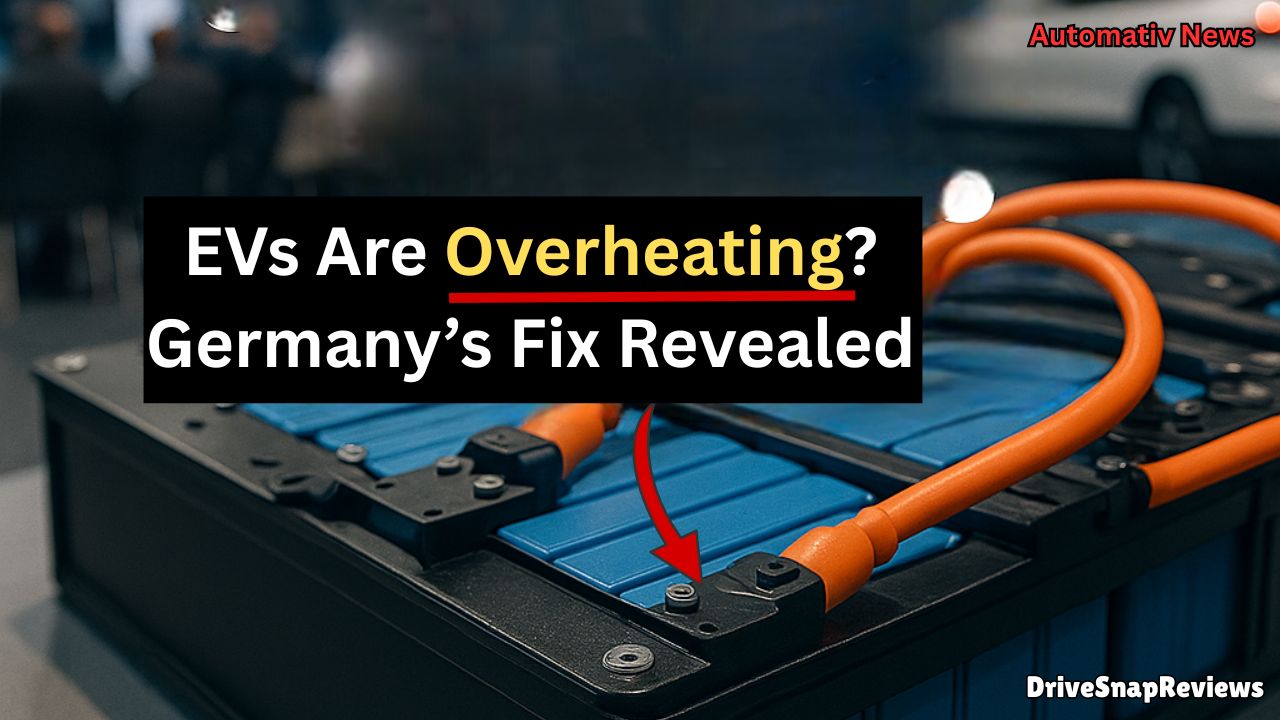EV Thermal Summit 2025: How Germany Is Powering the Future of Sustainable Electric Cars
The EV Thermal Summit 2025, scheduled for June 12-13 in Düsseldorf, Germany, is one of Europe’s most anticipated events in the field of electric vehicle innovation. As electric vehicles gain popularity, regulating battery heat and optimizing performance have become important. That is where EV Thermal Management 2025 receives global focus.
The summit will bring together leading engineers, automakers, and sustainability experts from throughout Europe to discuss cutting-edge solutions for EV cooling systems. From battery heat control to climate-resilient vehicle designs, the event seeks to create the future of safer, smarter electric mobility. This summit is a must-see for anybody interested in the evolution of e-mobility, as it marks a watershed moment in how Europe approaches next-generation EV efficiency and sustainability.
Highlights of the Düsseldorf EV Summit 2025
The EV Thermal Summit 2025, scheduled for June 12-13 in Düsseldorf, Germany, is expected to become one of Europe’s most prominent electric mobility events. This event brings together global specialists to discuss the most recent developments in EV thermal management 2025, with a particular emphasis on battery safety, cooling efficiency, and sustainable design. The lectures will focus on breakthroughs in phase-change cooling, CO₂ heat pumps, lightweight materials, and dynamic heat recovery systems. Industry professionals from Henkel, SK Enmove, and Fuchs will offer information about sophisticated EV cooling systems that Europe is implementing to support next-generation electric vehicles. With over 200 professionals planned to participate, the summit aims to determine the future of thermal safety and efficiency in electric vehicles in Europe and beyond.
Key Innovations in Battery Cooling & Safety Systems
One of the most essential priority areas for EV Thermal Management 2025 is better battery cooling. As electric vehicles grow more powerful and prevalent in Europe, old cooling methods such as passive air systems are being replaced with smarter, more efficient technology. Phase-change materials (PCMs) are gaining popularity for their capacity to absorb and release heat during battery charging and discharging cycles, resulting in increased stability. CO₂-based heat pump systems are becoming a sustainable alternative to traditional refrigerants, matching with Europe’s tighter emission standards. These advancements are crucial to talks at the EV Thermal Summit 2025, where engineers and experts will demonstrate how next-generation cooling systems may increase EV range, fast-charging safety, and overall battery life.
Another important breakthrough gaining traction in EV Cooling Systems Europe is the use of AI and smart sensors to prevent battery overheating and fires. Given the growing worry over thermal runaway occurrences, manufacturers are investing in predictive cooling algorithms that change thermal output in real time based on driving behavior and ambient circumstances. Lightweight composite enclosures with inbuilt cooling channels are also being developed to reduce weight while maintaining safety. Furthermore, dynamic thermal management technologies allow EVs to recycle excess heat to warm the cabin or precondition the battery in cold conditions. These game-changing innovations are more than just notions; they are being discussed and demonstrated at the 2025 summit, putting Europe at the forefront of safe and sustainable electric car innovation.
Challenges in EV Thermal Management: What Experts Are Saying
EV vs Hybrid vs ICE – Thermal Management Comparison (2025)
| Feature | EV | Hybrid | ICE |
|---|---|---|---|
| Heat Source | Battery & motors | Engine + battery | Combustion engine |
| Cooling Challenge | Battery overheating during fast charging | Dual systems—engine & battery | High-temperature engine heat |
| Tech Used (2025) | Liquid cooling, PCMs, AI sensors | Liquid cooling + radiator | Traditional radiator & fans |
| Sustainability Focus | High – low emissions + recyclable coolants | Medium – mix of tech | Low – fossil fuel dependence |
| Future-readiness | High – core to EV safety & efficiency | Moderate – evolving tech | Low – tech plateau |
Conclusion:-
As the world moves closer to 100% electric mobility, EV Thermal Management 2025 will play an increasingly important role. From improved battery cooling systems to AI-powered safety mechanisms, the advancements featured at the Düsseldorf EV Thermal Summit clearly indicate a shift toward safer, more efficient electric vehicles. While issues such as battery overheating and system integration remain, Europe, particularly Germany, is leading the way in next-generation EV cooling solutions and sustainable engineering. Looking ahead, successful adoption will be dependent on worldwide collaboration, standardization, and ongoing R&D. Staying up to date on thermal advancements is critical for manufacturers, engineers, and EV purchasers alike as it shapes the future of EV performance and safety.
